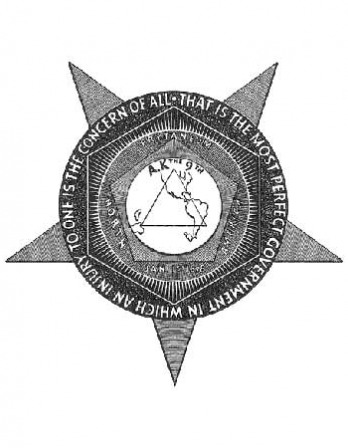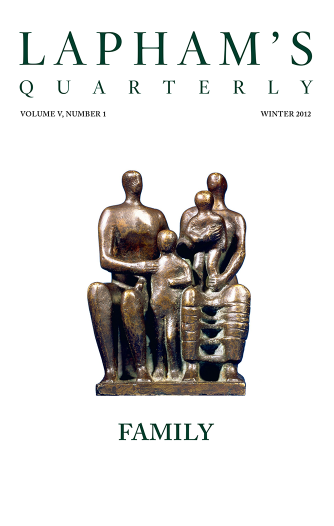Energy is the power that drives every human being. It is not lost by exertion but maintained by it, for it is a faculty of the psyche.
—Germaine Greer, 1970Degrees of Elevation
Samuel Johnson’s ideal workspace.
It is universally known that the faculties of the mind are invigorated or weakened by the state of the body, and that the body is in a great measure regulated by the various compressions of the ambient element.
The effects of the air in the production or cure of corporeal maladies have been acknowledged from the time of Hippocrates, but no man has yet sufficiently considered how far it may influence the operations of the genius, though every day affords instances of local understanding, of wits and reasoners whose faculties are adapted to some single spot and who, when they are removed to any other place, sink at once into silence and stupidity. I have discovered, by a long series of observations, that invention and elocution suffer great impediments from dense and impure vapors, and that the tenuity of a defecated air at a proper distance from the surface of the earth accelerates the fancy and sets at liberty those intellectual powers which were before shackled by too strong attraction and unable to expand themselves under the pressure of a gross atmosphere. I have found dullness to quicken into sentiment in a thin ether, as water, though not very hot, boils in a receiver partly exhausted, and heads, in appearance empty, have teemed with notions upon rising ground, as the flaccid sides of a football would have swelled out into stiffness and extension.
For this reason I never think myself qualified to judge decisively the faculties of any man whom I have known in only one degree of elevation, but take some opportunity of attending him from the cellar to the garret and try upon him all the various degrees of rarefaction and condensation, tension and laxity. If he is neither vivacious aloft, nor serious below, I then consider him as hopeless; but as it seldom happens that I do not find the temper to which the texture of his brain is fitted, I accommodate him in time with a tube of mercury, first marking the points most favorable to his intellects, according to rules which I have long studied, and which I may, perhaps, reveal to mankind in a complete treatise of barometrical pneumatology.
Another cause of the gaiety and sprightliness of the dwellers in garrets is probably the increase of that vertiginous motion with which we are carried around by the diurnal revolution of the earth. The power of agitation upon the spirits is well known; every man has felt his heart lightened in a rapid vehicle or on a galloping horse; and nothing is plainer than that he who towers to the fifth story is whirled through more space by every circumrotation than another who grovels upon the ground floor. The nations between the tropics are known to be fiery, inconstant, inventive, and fanciful because, living at the utmost length of the earth’s diameter, they are carried about with more swiftness than those whom nature has placed nearer to the poles; therefore, as it becomes a wise man to struggle with the inconveniences of his country, whenever celerity and acuteness are requisite, we must actuate our languor by taking a few turns around the center in a garret.
If you imagine that I ascribe to air and motion effects which they cannot produce, I desire you to consult your own memory and consider whether you have never known a man to acquire reputation in his garret which, when fortune or a patron had placed him upon the first floor, he was unable to maintain; and who never recovered his former vigor of understanding till he was restored to his original situation. That a garret will make every man a wit I am very far from supposing; I know there are some who would continue as blockheads even on the summit of the Andes or on the peak of Tenerife. But let not any man be considered as unimprovable till this potent remedy has been tried, for perhaps he was formed to be great only in a garret, as the joiner of Aretaeus was rational in no other place but his own shop.
I think a frequent removal to various distances from the center so necessary to a just estimate of intellectual abilities, and consequently of so great use in education, that if I hoped that the public could be persuaded to so expensive an experiment, I would propose that there should be a cavern dug and a tower erected, like those which Bacon describes in Solomon’s house, for the expansion and concentration of understanding, according to the exigence of different employments or constitutions. Perhaps some that fume away in meditations upon time and space in the tower might compose tables of interest at a certain depth, and he that upon level ground stagnates in silence or creeps in narrative might at the height of half a mile ferment into merriment, sparkle with repartee, and froth with declamation.

Samuel Johnson
From an essay in The Rambler. In 1750, James Boswell writes, Johnson “came forth in the character for which he was eminently qualified”; that is, he decided to start a periodical. The Rambler appeared every Tuesday and Saturday for exactly two years. Because he was then also assembling his Dictionary of the English Language, he was often forced to draft copy at the last minute. Boswell writes that the results exhibit Johnson’s “great fund of miscellaneous knowledge, which…was ever ready at his call, and which he had constantly accustomed himself to clothe in the most apt and energetic expression.”




